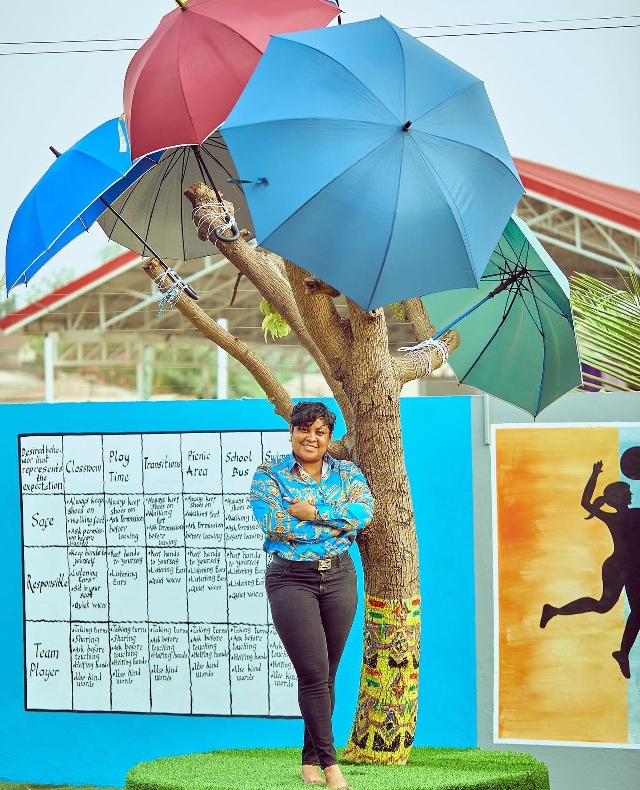Understanding autism: Breaking down barriers and building acceptance
 hara Brigitte Mills, CEO of Mulan Neurodiversity School/Mulan Smart Educational Center,
hara Brigitte Mills, CEO of Mulan Neurodiversity School/Mulan Smart Educational Center,
April is Autism Awareness Month, but awareness and acceptance are essential every day. Autism, also known as Autism Spectrum Disorder (ASD), is a neurological and developmental disorder that affects communication, social interaction, and behaviour.
It is a spectrum disorder, meaning it affects individuals differently and to varying degrees. While some people with autism may require significant support, others may need less support and go on to lead independent lives.
Autism can manifest in various ways, making it essential to understand its complexities.
Individuals with autism may experience difficulties with verbal and nonverbal communication, such as delayed or absent language development, difficulty initiating or maintaining conversations, and struggles with understanding tone, sarcasm, and idioms.
They may also face challenges with social interactions and relationships, including difficulty understanding social cues, initiating or maintaining friendships, and developing and maintaining romantic relationships.
Additionally, people with autism may exhibit repetitive behaviors or interests, such as hand flapping, body rocking, or an intense focus on specific topics.
They may also experience sensory sensitivities or difficulties with sensory integration, including hypersensitivity to light, sound, or touch, or hyposensitivity to pain or temperature.
Despite the progress made in autism awareness, misconceptions and myths still exist. One common myth is that autism is caused by poor parenting.
However, research has consistently shown that autism is a neurological disorder with no known cause. Another myth is that people with autism are intellectually disabled.
In reality, autism affects individuals of all intelligence levels, and many people with autism have average or above-average intelligence.
Furthermore, there is a common misconception that autism is something to be "cured." However, autism is a natural part of human diversity, and many individuals with autism and their families reject the idea of a "cure." Instead, they advocate for acceptance, support, and inclusion.
Building acceptance and inclusion requires a multifaceted approach. Education is key, and learning about autism and its effects on individuals and families is essential.
Acceptance involves embracing and appreciating individuals with autism for who they are, without trying to change them or force them to conform to societal norms.
Inclusion means creating opportunities for people with autism to participate and contribute, whether in education, employment, or community activities.
Support is also crucial, and offering help and resources to individuals with autism and their families can make a significant difference.
This can include providing access to therapies, such as occupational therapy, speech therapy, and behavioral therapy, as well as offering respite care, counseling, and other forms of support.
Getting involved in autism awareness and acceptance efforts can take many forms.
Participating in Autism Awareness Month events and activities, donating to reputable autism organizations and research initiatives, and volunteering with local autism support groups and organizations are all valuable ways to contribute.
Advocating for autism acceptance and inclusion in your community, whether through social media, public events, or conversations with friends and family, can also help create a more supportive and welcoming environment for individuals with autism and their families.
Driven by a passion for inclusivity, Thara Brigitte Mills, CEO of Mulan Neurodiversity School/Mulan Smart Educational Center, has been championing a crucial mission: promoting awareness, acceptance, and inclusion of autism through education.
Alongside her dedicated team, she envisions a world where individuals with autism are not only valued and respected but also empowered to realize their full potential.
Source: Classfmonline.com
Trending Features

China’s “two sessions” bring confidence and opportunities to the world
14:52
Chieftaincy institution in Ghana at a crossroads – A perspective by Andrews Kofi Anokye (KOANS)
17:37
John Mahama and Malik Basintaale will be cowards If gov’t kowtows to Manasseh’s commandment and blackmails them not to renew the waste management contract
10:27




